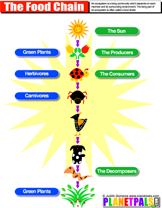That's all folks!
Now isn't that just cute? At the end of the cartoon adventure, a little humor and then a polite dismissal, telling us the show is over.
Yet, we always want more. When a story is over, we ask for another, preferring to be lost in an alternate reality to our current reality. The example of the abused princess who loses her glass slipper at the ball of her true love comes to mind.
First came the original story, "The Little Glass Slipper," in the french book Histoires ou contes du temps passé by Charles Perrault.
Somewhere along the lines, Disney decided it made quite the lovely tale, and created the animated movie Cinderella.
However, this wasn't enough for fans of the story, so the movie A Cinderella Story was created, based on the original plot.
However, even the modern remake wasn't enough, and we "needed" Another Cinderella Story.
I'm just going to be brutally honest for a second and say that the remixes of the original are dreadful. But that's beside the point. Anyways, if we just keep wanting to hear stories, why do we want an end?
Every child (and if not you, then your siblings, cousins, neighbors, etc.) loves to be read a bed time story. Without fail, what happens when the story is finished if the kiddo is not yet asleep? He demands another. If we have this inherent love for story, even as a child, why can we not just continue an endless story?
I think it is because of our desire for order and knowing. Even if we are as right-brained and sporadic as it gets, we still enjoy a little closure so that we can close the lid and store the story. We want a neat little stack of completion rather than a long, never ending chain that does not neatly fit in anywhere. It would grow so big that it could connect with everything, and yet not fully with anything else. It would be possible to draw comparisons between parts, but never a whole, and that can be frustrating.
In terms of knowing, we are a curious people. We want to know how things turn up, does it work, and what could we expect if it were to happen to us. In a long story, our impatience gets to us, and rather than enjoy the story, we want to see the outcomes, and we begin to strive for the ending instead of enjoying the adventure of getting there. In addition, I believe we are afraid of getting confused if the story is long. We take length to mean complexity and confusion full of twists and turns, but in reading The Arabian Nights, I have found my preconceived notions of this to be false. Through the stories, I am swept up, but every individual tale is short enough and tied back to the upper levels quickly enough that I am not lost or confused, but continue to look forward to the next layer within the overarching story.
This is where the art of storytelling comes in. A good storyteller is able to weave an intricate individual tale, while still keeping the connection between the other stories clear so that the listener is able to simply enjoy and focus on one story without fear of losing the bigger one. Therefore, I believe that we don't necessarily want an ending, we just want clarity.



